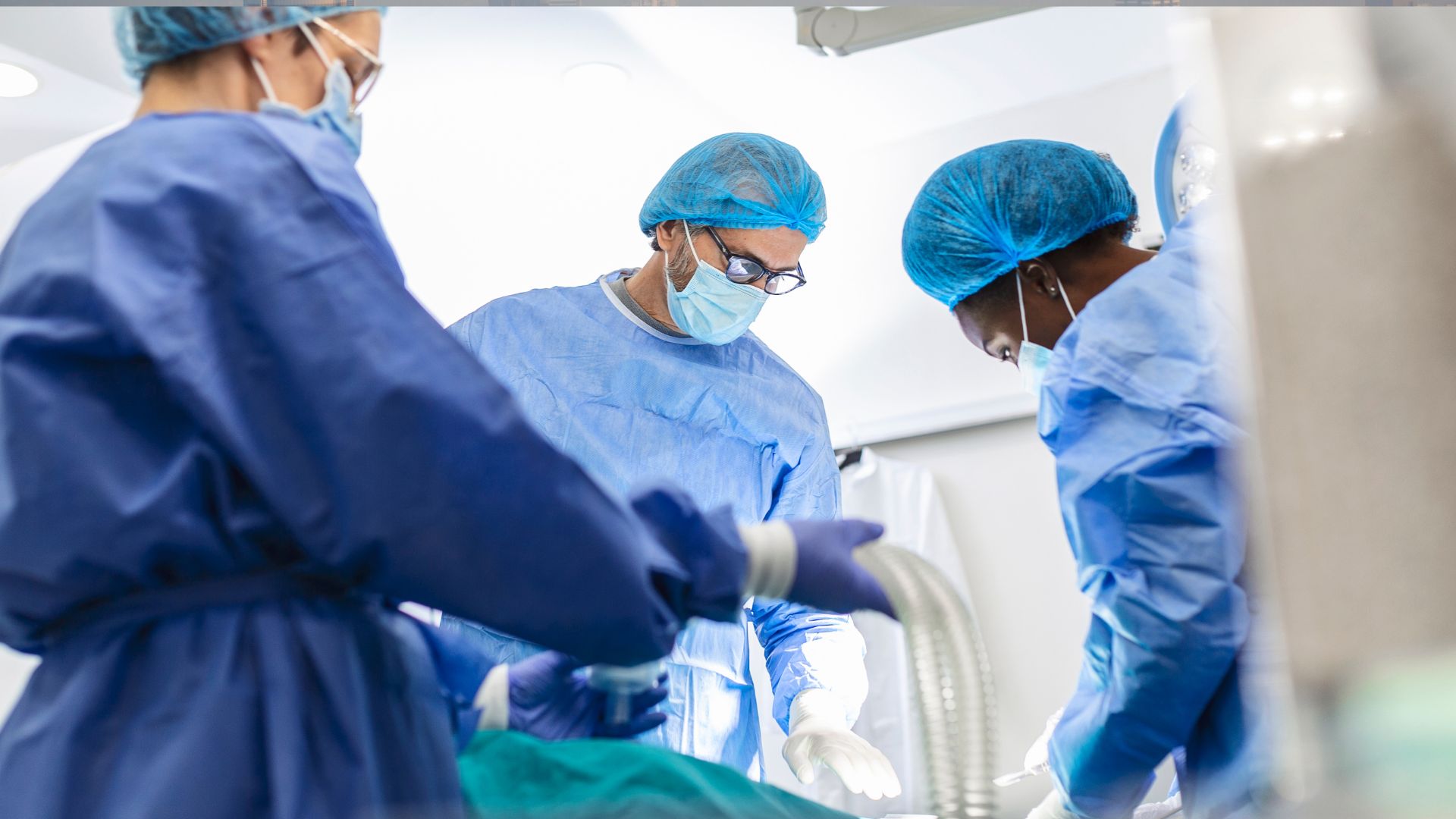Chronic sinus problems can significantly impact one’s quality of life, leading to discomfort, pain, and difficulty breathing. As an ENT surgeon, Dr. Vivek Kumar Pathak understands the challenges individuals face when dealing with persistent sinus issues. In this blog post, we will explore various surgical options available for managing chronic sinus problems effectively.
Introduction to Chronic Sinus Problems
Understanding Sinusitis
Sinusitis refers to the inflammation or swelling of the tissue lining the sinuses. When this condition persists for an extended period, it is termed chronic sinusitis.
Chronic vs. Acute Sinusitis
While acute sinusitis often resolves within a few weeks with proper treatment, chronic sinusitis lasts for 12 weeks or longer, despite attempts at medical management.
Causes of Chronic Sinus Problems
Chronic sinus problems can stem from various underlying factors, including:
Allergies
Allergic reactions to environmental triggers such as pollen, dust mites, or pet dander can lead to chronic inflammation of the sinuses.
Nasal Polyps
The presence of nasal polyps, small growths in the nasal passages, can obstruct airflow and contribute to chronic sinusitis.
Deviated Septum
A deviated septum, where the nasal septum is shifted to one side, can impede proper drainage of the sinuses, increasing the risk of chronic sinus problems.
Respiratory Infections
Frequent respiratory infections, such as colds or flu, can lead to persistent inflammation of the sinus lining, resulting in chronic sinusitis.
Symptoms of Chronic Sinusitis
The symptoms of chronic sinus problems may vary from person to person but commonly include:
Facial Pain and Pressure
Persistent pain and pressure around the cheeks, eyes, forehead, and nose are hallmark symptoms of chronic sinusitis.
Nasal Congestion
Difficulty breathing through the nose due to nasal congestion is a common complaint among individuals with chronic sinus problems.
Headaches
Chronic headaches, often worsened by bending forward or lying down, can result from the pressure buildup within the sinuses.
Fatigue
The persistent discomfort associated with chronic sinusitis can lead to fatigue and reduced energy levels.
Reduced Sense of Smell and Taste
Inflammation and congestion in the nasal passages can impair the sense of smell and taste.
Diagnosis
Diagnosing chronic sinus problems involves a thorough evaluation, including:
Medical History and Physical Examination
The doctor will inquire about the patient’s symptoms, medical history, and perform a physical examination of the nasal passages and sinuses.
Imaging Tests
Imaging studies such as CT scans or MRIs may be ordered to assess the extent of sinus inflammation and identify any structural abnormalities.
Nasal Endoscopy
A nasal endoscopy allows the doctor to visualize the inside of the nasal passages and sinuses using a thin, flexible tube with a camera attached.
Non-Surgical Treatments
Before considering surgery, non-surgical treatments are usually attempted, including:
Nasal Irrigation
Rinsing the nasal passages with a saline solution can help clear mucus and reduce inflammation.
Nasal Steroid Sprays
Prescription or over-the-counter nasal steroid sprays can help reduce nasal inflammation and congestion.
Oral or Injectable Steroids
In severe cases, oral or injectable steroids may be prescribed to alleviate inflammation.
Antibiotics
If a bacterial infection is suspected, antibiotics may be prescribed to treat the underlying cause of sinusitis.
Allergy Medications
Antihistamines or allergy shots may be recommended for individuals with allergic sinusitis.
Immunotherapy
Immunotherapy involves desensitizing the immune system to specific allergens through regular injections or sublingual tablets.
Surgical Options
When conservative treatments fail to provide relief, surgical intervention may be necessary. Several surgical options are available for managing chronic sinus problems, including:
Functional Endoscopic Sinus Surgery (FESS)
FESS is a minimally invasive procedure performed using an endoscope to remove obstructive tissue and restore proper sinus drainage.
Balloon Sinuplasty
During balloon sinuplasty, a small balloon catheter is inserted into the blocked sinus passage and inflated to widen the opening, allowing for better drainage.
Septoplasty
Septoplasty involves straightening the nasal septum to improve airflow and facilitate sinus drainage.
Turbinate Reduction
Turbinate reduction aims to reduce the size of swollen nasal turbinates, which can obstruct airflow and contribute to chronic sinusitis.
Sinus Surgery with Image Guidance
Using advanced imaging technology, surgeons can precisely navigate the sinus passages and target affected areas during surgery.
Recovery and Postoperative Care
Following sinus surgery, patients will require:
Pain Management
Pain medications may be prescribed to alleviate discomfort during the recovery period.
Nasal Packing Removal
Any nasal packing or splints placed during surgery will be removed by the doctor within a few days.
Follow-up Appointments
Regular follow-up appointments will be scheduled to monitor healing progress and address any concerns.
Resuming Normal Activities
Patients are typically advised to avoid strenuous activities and heavy lifting for a few weeks following surgery.
Benefits and Risks of Surgery
While surgery can offer significant benefits, it also carries potential risks and complications, including:
Improved Quality of Life
Surgery can provide long-term relief from chronic sinus symptoms, improving overall quality of life.
Reduced Recurrence
By addressing underlying structural issues, surgery can reduce the likelihood of recurrent sinus infections.
Potential Risks and Complications
Like any surgical procedure, there are risks of bleeding, infection, or adverse reactions to anesthesia.
Lifestyle Changes and Prevention
In addition to medical and surgical treatments, making certain lifestyle changes can help prevent recurrent sinus problems, such as:
Avoiding Triggers
Identifying and avoiding triggers such as allergens or irritants can reduce the frequency of sinus symptoms.
Maintaining Nasal Health
Practicing good nasal hygiene, such as keeping the nasal passages moist and avoiding excessive nasal drying, can help prevent inflammation.
Using Air Filters
Using air filters or purifiers in the home can reduce exposure to airborne allergens and pollutants.
Humidifying the Air
Using a humidifier can add moisture to the air, preventing nasal dryness and congestion.
Seeking Professional Help
Individuals experiencing chronic sinus problems should seek professional help from an ENT specialist. A thorough evaluation will help determine the most appropriate treatment plan based on the individual’s unique needs.
Conclusion
Chronic sinus problems can significantly impact one’s quality of life, but effective treatment options are available. From non-surgical interventions to advanced surgical techniques, individuals suffering from chronic sinusitis can find relief and improve their overall well-being. By understanding the causes, symptoms, and treatment options for chronic sinus problems, patients can take proactive steps towards better sinus health.
FAQs
- How long does it take to recover from sinus surgery? Recovery times vary depending on the type of surgery performed and individual healing factors. In general, most patients can return to normal activities within 1-2 weeks.
- Are there any alternative treatments for chronic sinus problems? Alternative treatments such as acupuncture, herbal remedies, or chiropractic adjustments may offer symptom relief for some individuals, but their effectiveness varies.
- Can chronic sinus problems lead to complications? Untreated chronic sinusitis can lead to complications such as recurrent infections, the spread of infection to nearby structures, or the development of nasal polyps.
- Is sinus surgery painful? Sinus surgery is performed under anesthesia, so patients typically experience minimal discomfort during the procedure. Pain during the recovery period is managed with pain medications.
- How long do the effects of sinus surgery last? The effects of sinus surgery can vary, but many patients experience long-term relief from chronic sinus symptoms. However, some individuals may require additional treatments or procedures over time.
Get Access Now
Get expert guidance on managing chronic sinus problems and improving your quality of life. Schedule a consultation with Dr. Vivek Kumar Pathak, an experienced ENT surgeon specializing in sinus disorders.
About Author:
Dr. Vivek Kumar Pathak: Renowned ENT Surgeon, Senior Professor, and Founder.
Dr. Pathak, ENT surgeon at Kailash Hospital, Senior ENT Professor at Sharda University, and founder of Entegrity Care, brings expertise and innovation to healthcare. Discover the visionary behind Doxtreat Healthcare, shaping the future of ENT care.
Website www.drvivekpathak.com
Call +917838450942
WhatsApp +91 78384 50942
Book an appointment with Dr. Vivek kumar Pathak by filling the form.




